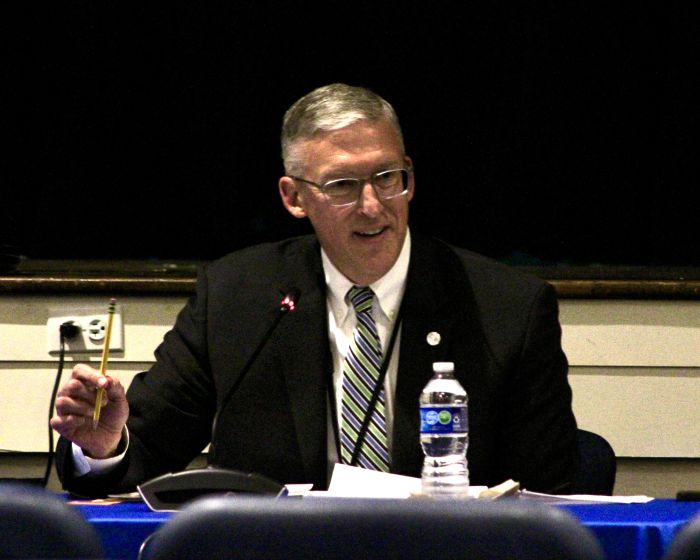Ah, the Great White North. America’s attic. Uncle Sam’s hat. The land of self-deprecation, Tim Hortons donuts and ice fishing. Less notably, it is the land of my birth. Although I became a U.S. citizen in the fifth grade, my Canadian roots were always a source of pride, despite precluding me from ever becoming president.
It has always amazed me how little we Americans think of our sister nation to the north. With the occasional exception of the tabloid coverage that accompanies “Bieber Fever,” the media here are devoid of Canadian news.
Perhaps it shouldn’t be surprising there hasn’t been a single article devoted to the indigenous Idle No More movement that has taken hold in Canada. As we witnessed during the early days of Occupy, corporate media are indifferent to dissent unless it’s displayed in a faraway nation by throngs of angry Arabic men. (Congrats again on winning Best Picture, Ben.) Recall that it took weeks for any established media to begin covering Occupy in any meaningful way, and when they finally did, they were largely dismissive of it.
Yet the American news media do spend a good deal of time and ink discussing the relationship between the United States and China. Any news of civil unrest in China is worrisome to corporate America because of our obsession with our mutual economic interests. After all, we are the global champions of human rights so long as we’re not stripped of our fundamental economic right to slave labor.
Missing from this equation is the fact that China is America’s second top trading partner. The first is Canada. Yes, the land that calls its one- and two-dollar coins “loonies” and “toonies” is our number one trading partner on the planet. This is why the lack of coverage of the Idle No More movement is rather astounding given that our economic interests are involved. Not only have Canadian Indians disrupted commerce, they are providing the strongest resistance on the Canadian side to the controversial Keystone XL Pipeline project that would run from Canada through several U.S. states.
In December of 2012, four Canadian activists named Jessica Gordon, Sylvia McAdam, Sheelah McLean and Nina Wilson founded Idle No More to protest the Canadian government’s passage of C-45—a massive omnibus bill containing anti-environmental provisions that might surprise many Americans. Since December, native people across Canada have disrupted major events and even gained international attention from a hunger strike waged by Attawapiskat Chief Theresa Spence. Protestors have closed off roads, blockaded bridges, cut off a road to a De Beers diamond mine and generally raised hell by attacking this bill for moving Canada further away from the path of sustainability.
Americans maintain a somewhat outdated vision of Canada as a nation of tree huggers and environmentalists. To wit, unlike every other industrialized nation in the world, Canada has regressed on climate change initiatives. In January, Global Legislative Organisation (GLOBE), an environmental NGO, issued its third report on the legislative initiatives of 33 nations. Of the 33 countries, which include China and the United States, GLOBE gave 32 of them credit for making progress in enacting and adopting beneficial environmental legislation. The only nation to go backwards? Canada.
John Kane, a native activist and writer who hosts a show on Indian affairs on WWKB-AM in Buffalo, says that Idle No More “is about water, land and sovereignty.” Like many who have observed Canadian politics of late, Kane laments that the dominion has been besieged by a warped conservative agenda, characterizing Canadian Prime Minister Stephen Harper as a “cross between Bush and Cheney.” Relations between the tribes and her majesty’s government, strained as they are, worsened as C-45 set off alarms among tribal leaders almost immediately.
“Harper initiated a suite of legislation,” says Kane, “that would lower the threshold to invade native lands and take streams, rivers, minerals, you name it.” Reading between the lines of a “jobs act” in the bill, Kane says that “job creation” is a euphemism for “the opportunity for other countries like China to participate in mineral extraction.”
Idle No More intersected with other activist movements in February when its members joined the massive rally in Washington, D.C., organized by the Sierra Club and 350.org, to call for President Obama to continue the U.S. obstruction of the Keystone XL Pipeline project. An estimated 30,000 to 40,000 protestors descended upon the National Mall. Michael Brune, head of the Sierra Club, was even arrested at the rally, breaking the organization’s longstanding prohibition against civil disobedience. (The rally was also woefully under-reported by corporate media.)
President Obama is clearly important in the process and the U.S. has to clear far more regulatory hurdles to move the Keystone project forward. But the pressure to begin construction is coming more from the Canadian government than anywhere else. The Harper administration, with tremendous support from Canadian petro companies, is hell-bent on exploiting the Alberta tar sands, no matter how environmentally catastrophic the process is.
“This is an area the size of Florida,” says Kane. “The bottom line is Canada can make a lot of money by raping Alberta.”
Idle No More goes beyond the Keystone Pipeline. This week I spoke with Yoni Miller, who is the president of Occupy Wall Street—an intentionally ironic title as Occupy continues to be an amorphous, leaderless and volunteer movement. I reached out to him because the Occupy outlets were among the relatively few areas to obtain any information outside of native publications. Regarding C-45 and the potential toll on native territory, Miller said, “We all know it’s more than that—it’s about the ongoing and existing process of colonialization.” He also believes the tribes have better insight to environmental issues because of “their unique relationship to the land.”
On Jan. 5 of this year Yoni was invited to Akwesasne, the Mohawk territory that straddles the St. Lawrence River between New York and Ontario. For several hours Iroquois members of Idle No More shut down the Seaway International Bridge between the U.S. and Canada—an experience Miller called “humbling.” When I asked him whether he felt Occupy had fueled any of the confidence in Idle No More, he was reluctant to take anything away from what had been accomplished.
“It may not have been possible without the energy from Occupy,” he said, but then quickly added, “but these people were activists before we were even born. Indigenous resistance has been going on since 1492. It’s what makes this different.”
Both Occupy and Idle are relatively quiet at the moment. But John Kane and Yoni Miller independently expressed the same sentiment that spring is the season of awakening and that both groups will be on the move. Perhaps they will jolt the mainstream media from their hibernation as well, though I doubt it. These particular bears appear to be idle, forever more.
































